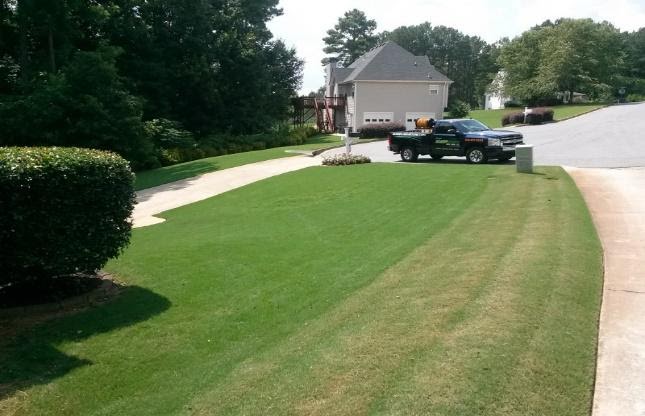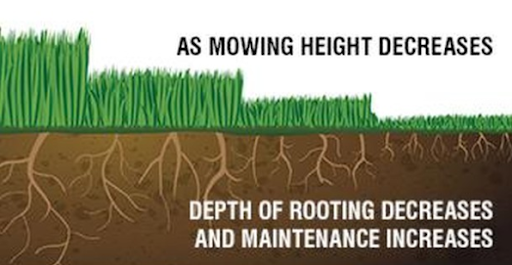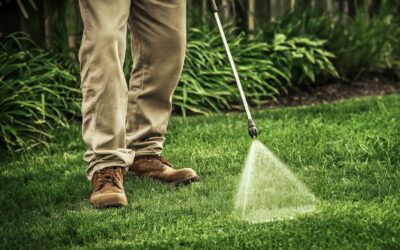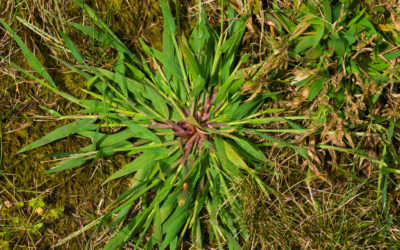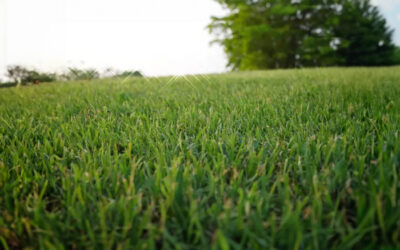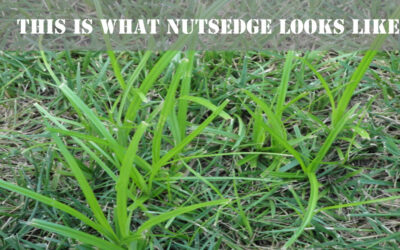Height
The height at which you should mow your grass varies depending on the season and the type of grass you have.
Spring
The weather is warming up and you start to get the itch to go outside and finally do some lawn work again after the long winter. If you have Bermuda grass, it is still brown and dormant from the winter, but scalping can help to hurry the greening process. To scalp, you mow the lawn at the lowest setting and if there are a lot of clippings, remove some of them. This process removes the dead grass from the top and allows the sun to reach the soil easier and warm it up faster. Scalping should typically be done after there is no more chance of frost and the grass is just barely starting to turn green, usually around the end of March/beginning of April. Scalping should only be done on Bermuda grass, and it should only be done once a year.
Summer
After the initial scalping process, you should cut at progressively higher heights throughout late spring and summer. No more than the top 1/3 of the grass should ever be cut off. This applies to all grass types. A good tip to knowing whether you are cutting high enough is to mow a little section and then check to see whether the lawn looks pale or brown. If it looks like the grass has lost its nice green color, raise the mower height by one notch and finish the lawn. As the summer heat and fertilizer causes the grass to grow faster, you will need to continue to raise the lawn mower height so that you continue to only cut the top 1/3 off the grass.
Fall
For Fescue lawns, this is the time that you will need to reseed. While scalping is never advised for Fescue, you can cut it a bit lower right before seeding, and this will help the process. For other grass types, continue mowing at one of the higher notches on your mower until the cold comes and the grass goes dormant.
Winter
More than likely, only Fescue lawns will need to be mowed at this time. Continue to follow the 1/3 rule.
Frequency
The frequency at which you’ll need to mow will depend on your lawn and grass type as well as the season. In spring, when the grass is not growing as fast, you won’t need to mow as often. However, during summer, you may need to mow once a week to keep it manageable. You should mow frequently enough that you don’t need to ever collect clippings. However, if you miss a few weeks of mowing during the summer, don’t jump into the height that you were at before. You will need to incrementally adjust the height down so that you do not damage the lawn. Cut the top 1/3 off, even if it is still tall, and then a few days later cut another 1/3 off, until you are at a reasonable height.
Why
The frequency and height at which you cut your grass will have a huge effect on whether your lawn stays green throughout the summer. Cutting your grass too low during the summer months can cause summer stress on the grass because the roots won’t be as deep and the heat from the sun will scorch the fragile grass, leaving semi-permanent brown spots or even killing the grass completely.
While we don’t cut grass, we can help make your lawn beautiful, if you’re interested in learning how, request a quote below.

